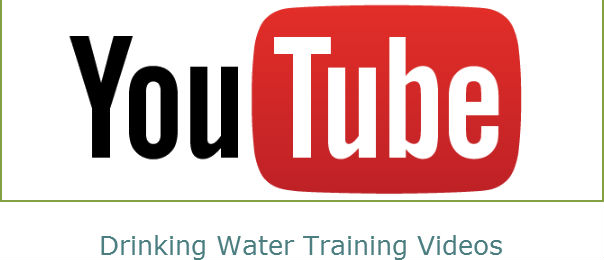What are Certified Operators?
All public water systems are classified according to the treatment technology in use and the population served. There are five classes of water systems: Classes 1, 2, 3, and 4 apply to water systems with their own source(s) of supply; Class D applies to consecutive systems that distribute water. In accordance with Subchapter 21-12 of the Water Supply Rule, all public water systems are required to have a designated operator certified by the DWGWPD. The class of certification that an operator is required to have is dependent on the classification of the facility. For example, a Class 1B water system must have a Class 1B operator or greater and a Class 3 water system must have a Class 3 operator or greater. Public TNC water systems may be classified as Class 1A, 1B, 3, or 4.
What is the Class of my Water System?
Visit the Public Water System Operator Certification page to determine the required Operator Class Type for your water system. The majority of TNC water systems are classified as Class 1A or Class 1B.
How Do I Become a Certified Operator?
Visit the Public Water System Operator Certification page to learn about the Initial Certification Requirements. The educational and experience requirements to become a certified operator increase with increasing level of certification. All certifications, regardless of class, are active for three years.
- Class 1A and 1B: Anyone with a high school education or equivalent can become a Class 1A or a Class 1B operator. There are no initial training requirements to obtain the certification.
- Complete the Application for Class 1A/1B Vermont Water System Operator and the attached Child Support and Vermont Taxes Statement; and
- Pay the $45 application fee. Make the check payable to the State of Vermont.
- Class 2, 3, 4, and D: The requirements to become an operator of a Class 2 system or greater are more rigorous due to the increased complexity of the water system and more vulnerable nature of the service population. The applicant must have a minimum of 1.5 years of initial experience, a letter from a supervisor verifying technical knowledge, and take and pass a certification exam. Contact the Operator Certification Manager for more information about becoming a Class 2, 3, 4, or D certified operator.
How Do I Obtain a Certified Operator?
A water system may employ a certified operator that holds a valid certification equal to or greater than the classification of the water system. An Officials Contact Form must be completed to designate an individual as the certified operator for a water system. Because the initial application requirements are minimal, most Class 1A and 1B water systems chose to have a person closely associated with the water system (owner, manager, administrative contact, staff member, etc.) become certified as an operator. The majority of Class 3 and 4 water systems decide to hire a certified contract operator instead of trying to become certified. For a list of contract operations in your area, contact the Vermont Rural Water Association.
How Do I Renew My Operator Certification?
Visit the Public Water System Operator Certification page to learn about Renewal Certification requirements.
What Are the Responsibilities of a Certified Operator?
The operator is responsible for insuring the proper operation of the water system and overseeing water quality monitoring. Specifically, the certified operator shall comply with the following requirements:
- Hold a valid certification equal to or greater than the classification of the water system;
- Be available at all times. “Available” means that the certified operator must be on site or able to be contacted as needed to initiate the appropriate action in a timely manner;
- Conduct visual inspections of the system’s source, source water protection area, storage facilities, and chemical addition systems at an appropriate frequency based on the water system’s design, location, vulnerability, water quality, and population;
- Understand all aspects of the system’s treatment and distribution network;
- Review the sample monitoring schedule and locations quarterly;
- Oversee all required water quality monitoring;
- Ensure that all samples are delivered to a certified laboratory and test results are submitted to the Water Supply Division in a timely manner;
- Inspect the system within 24 hours of any positive fecal coliform result, positive total coliform repeat sample result, or water system failure that may threaten public health;
- Notify the system owner of any situation that may threaten public health or any violation of the Water Supply Rule.
- Ensure the accuracy of water meters and other flow measuring devices, if applicable.
- Measure and record the types and amounts of any chemical additions.
- Operate and maintain chemical feed and all treatment systems.
- Operate and maintain the system in accordance with the Operation & Maintenance Manual (O&M manuals are recommended, but not required, for TNCs).
- Oversee source water protection.
- Keep complete and accurate water system records.
- Comply with all reporting requirements, including submitting water quality test results, a monthly report (if applicable), and an annual report to the DWGPD in a timely manner.
- Develop and maintain an accurate site plan showing the water source and distribution system.
- Respond to consumer complaints promptly.
- Keep abreast of changes in the drinking water regulations and safety regulations.
- Fulfill operator certification and certification renewal requirements.
- Attend all inspections as requested by state personnel.
- Comply with all applicable state and federal statutes, rules and orders governing water system regulation.
- Conduct all duties with reasonable care and judgment for the protection of public health, public safety, and the environment.


